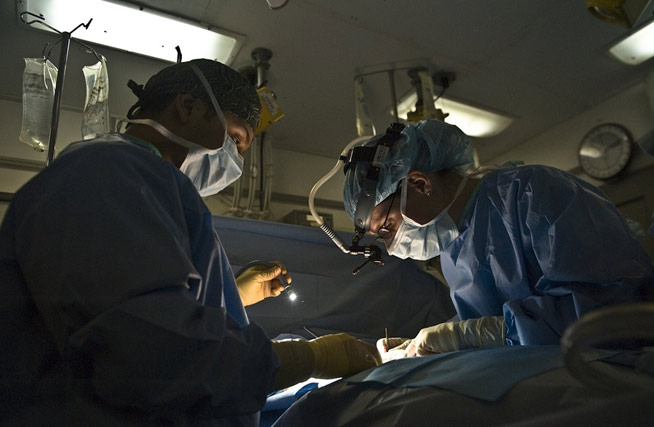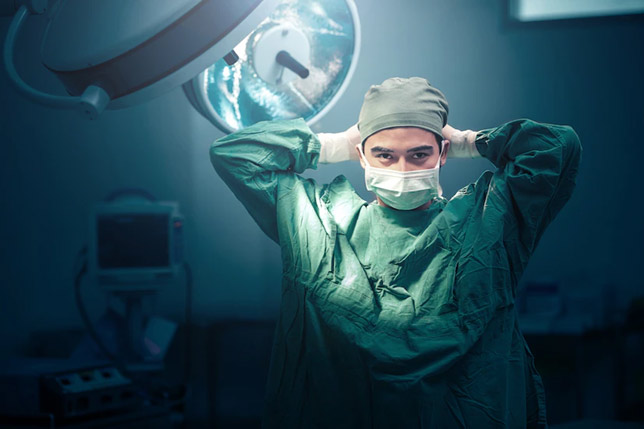
Anyone who has ever dealt with sleep apnea knows that it’s no laughing matter.
This serious condition can take a toll on your health, your relationships, and your quality of life. If you’re considering surgery for sleep apnea, you’re probably wondering about the success rate, risks, and side effects.
You’ll also want to be sure you’re working with an experienced ENT surgeon.
In this blog post, we’ll cover everything you need to know about sleep apnea surgery so you can make the best decision for your health.
What Is Sleep Apnea?

Before we dive into the nitty-gritty of sleep apnea surgery, let’s first take a step back and review what sleep apnea is.
A condition in which your breathing is affected while you sleep is called Sleep Apnea. This disorder is further divided into two types which are namely obstructive sleep apnea, commonly known as OSA, and central sleep apnea also known as CSA.
OSA is the most common type of sleep apnea and occurs when your airway is blocked during sleep. CSA is less common and occurs when your brain doesn’t send signals to your muscles to breathe.
Sleep apnea can lead to several serious health problems, including heart disease, stroke, high blood pressure, and diabetes. Sleep apnea can be fatal if left untreated.
That’s why it’s important to seek treatment if you think you may have sleep apnea.
What Are the Treatment Options for Sleep Apnea?
There are a variety of treatment options available for sleep apnea, including lifestyle changes, oral appliances, and continuous positive airway pressure CPAP therapy.
However, for some people with severe sleep apnea, surgery may be the best option. There are three commonly used surgical procedures to treat sleep apnea: uvulopalatopharyngoplasty (UPPP), maxillomandibular advancement (MMA), and tracheostomy.
UPPP involves removing tissue at the back of the throat to widen the airway. MMA involves moving the jaw forward to open up the airway.
While tracheostomy involves creating an opening in the neck to insert a breathing tube. There are many other procedures but these are the most common.
The Best Surgery for Sleep Apnea
The best surgery for sleep apnea depends on the individual. UPPP is often the first surgical option for sleep apnea, but it’s not always the best-suited procedure for everyone.
When it comes to finding the best surgery for sleep apnea, there is no one-size-fits-all approach.
The best option depends on a variety of factors, including an individual’s health history, age, lifestyle, and even the severity or type of sleep apnea.
Some might need procedures that involve making changes to the structure of the airway, such as by breaking up or removing soft tissue in the back of the throat.
Others might need to have their breathing pattern modified using a machine known as a continuous positive airway pressure (CPAP) device, which uses a mechanical device to help you breathe at night.
Still, others are geared toward needing nasal congestion alleviation and improved airflow by modifying nasal anatomy.
Ultimately, the most effective treatment will depend on both the underlying causes of one’s sleep apnea as well as unique circumstances.
What Are the Success Rates of Sleep Apnea Surgery?

The success rate of sleep apnea surgery varies depending on the type of surgery being performed.
Uvulopalatopharyngoplasty (UPPP), for example, has a success rate of 50–80%. This means that 50–80% of people who have UPPP surgery will experience a decrease in the severity of their sleep apnea symptoms.
However, it’s important to keep in mind that UPPP is often only effective in mild to moderate cases of sleep apnea.
If you have severe sleep apnea, your surgeon may recommend another type of surgery, such as maxillomandibular advancement (MMA).
MMA has a slightly higher success rate than UPPP, with 60–90% of people experiencing symptom relief after surgery.
Risks or Side Effects Associated with Sleep Apnea Surgery
As with any surgical procedure, there are certain risks and side effects associated with sleep apnea surgery.
These include bleeding, infection, pain, swelling, numbness, and difficulty swallowing or speaking. These side effects are usually temporary and can be managed with pain medication and antibiotics, if necessary.
In rare cases, more serious complications can occur, such as paralysis of the vocal cords or damage to the teeth or jawbones, difficulty swallowing, numbness in the tongue or lips, changes in speech, or paralysis of the vocal cords.
Fortunately, these complications rarely occur.
However, that’s still enough reason why it’s so important that you consult with an experienced ENT surgeon before undergoing any type of sleep apnea surgery.
Choosing an Experienced ENT Surgeon in Singapore

When considering sleep apnea surgery, you must choose an experienced ENT surgeon who is familiar with the latest surgical techniques and technologies.
You’ll want to be sure that your surgeon is experienced in performing the specific type of surgery that you’re considering.
Be sure to ask about your surgeon’s success rates with this particular procedure and what kind of postoperative care they offer. With the right surgeon on your team, you can be confident that you’re making the best decision for your health.
Conclusion
Sleep apnea is a serious condition that can have a major impact on your health if left untreated.
If you’re considering surgery for sleep apnea, it’s important to be informed about the success rates, risks, and side effects associated with the different types of procedures. Check out this article on Sleep Apnea Singapore website.
Be sure to consult with an experienced ENT surgeon before making any treatment decisions. Thanks for reading!